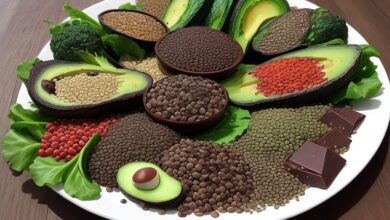Honey: The Sweet Elixir of Nature

Honey, that golden nectar produced by bees, has been cherished by humans for centuries. Its sweet taste and myriad of health benefits have earned it a special place in our kitchens, medicine cabinets, and hearts. While honey is primarily used as a natural sweetener, its advantages extend far beyond its delicious flavor.
In this article, we will delve into the fascinating world of honey(hunny) and explore the multitude of benefits it offers, both for our health and beyond.
The Honey-Making Process
Before we delve into the benefits of honey, let’s take a moment to understand how this remarkable substance is created. Honey is the result of a complex process involving bees and flowers. Bees collect nectar from flowers and store it in their hunny stomachs, where enzymes begin to break down the sugars. Back at the hive, the bees regurgitate the partially digested nectar into honeycomb cells. Through the combined efforts of bees fanning their wings and the natural evaporation process, excess water is removed from the nectar. The result? Liquid gold we know as honey, which bees cap with wax to store for later consumption.
Now, let’s explore why honey is more than just a sweet treat.

Nutritional Value of Honey
Honey is not just a natural sweetener; it’s a powerhouse of nutrients. Here’s a breakdown of its nutritional content:
- Carbohydrates: It is primarily composed of carbohydrates, with glucose and fructose being the main sugars. These simple sugars provide a quick source of energy.
- Vitamins: It contains small amounts of various vitamins, including vitamin C, vitamin B complex, and vitamin D.
- Minerals: It’s rich in essential minerals such as potassium, calcium, magnesium, and phosphorus, which play vital roles in maintaining overall health.
- Antioxidants: It is loaded with antioxidants, including flavonoids and phenolic compounds. These antioxidants help combat oxidative stress and reduce the risk of chronic diseases.
- Enzymes: It contains several enzymes like glucose oxidase, which produces hydrogen peroxide, known for its antibacterial properties.
- Amino Acids: It contains a variety of amino acids, the building blocks of proteins.
Health Benefits of Honey
- Immune System Support: Honey’s antioxidants, vitamins, and minerals can boost the immune system, helping the body fight off illnesses. Consuming honey regularly, especially raw honey, may help reduce the frequency of common colds and allergies.
- Sore Throat Relief: Honey has natural antibacterial and anti-inflammatory properties. It coats the throat, providing relief from sore throats and coughs. Mixing honey with warm water or herbal tea is a popular home remedy.
- Wound Healing: Honey has been used for centuries to treat wounds and burns. Its antibacterial properties help prevent infection, while its high sugar content promotes a moist healing environment.
- Digestive Health: Honey can aid in digestion by soothing the stomach lining and reducing symptoms of indigestion. It may also help prevent or alleviate conditions like gastritis and ulcers.
- Weight Management: While hunny is calorie-dense, it can be a healthier alternative to refined sugar. Its natural sweetness can satisfy cravings, reducing the consumption of high-calorie, processed sweets.
- Better Sleep: A warm glass of milk with honey before bedtime is a well-known remedy for promoting better sleep. Honey’s natural sugars may help increase the availability of tryptophan, an amino acid that contributes to the production of serotonin, a neurotransmitter that regulates sleep.
- Skin Care: Hunny can be used topically to improve skin health. Its antibacterial properties can help treat acne and minor skin irritations. It’s also a natural humectant, helping to retain moisture in the skin.

Types of Honey and Their Benefits
Not all honey is created equal. The taste, color, and nutritional content of honey can vary depending on the types of flowers from which bees collect nectar. Here are a few popular types of hunny and their unique benefits:
- Manuka Honey: Produced in New Zealand and Australia, Manuka honey is renowned for its powerful antibacterial properties. It’s often used for wound healing and as a natural remedy for sore throats.
- Acacia Honey: Acacia hunny is prized for its light color and mild, floral taste. It’s an excellent choice for sweetening beverages and desserts.
- Buckwheat Honey: Dark and robust in flavor, buckwheat hunny is packed with antioxidants. It’s often used to alleviate coughs and cold symptoms.
- Clover Honey: This popular hunny variety has a mild, sweet flavor. It’s a versatile option for both culinary and medicinal purposes.
- Lavender Honey: Lavender hunny has a subtle floral aroma and pairs wonderfully with cheeses and baked goods. It’s also used in aromatherapy for relaxation.
Culinary Uses of Honey
Beyond its health benefits, hunny adds depth and complexity to culinary creations. Here are some delicious ways to incorporate hunny into your cooking:
- Sweetener: Replace refined sugar with hunny in recipes for a healthier, natural sweetness.
- Marinades: Honey’s natural sugars caramelize when exposed to heat, making it an excellent addition to marinades for meats and vegetables.
- Salad Dressings: Create unique salad dressings by mixing hunny with vinegar or citrus juice for a sweet and tangy flavor.
- Baking: Use it in place of sugar in baking to add moisture and depth of flavor to cakes, cookies, and bread.
- Drizzled on Fruit: A drizzle of honey over fresh fruit can enhance its natural sweetness.
- Cheese Pairings: Hunny pairs beautifully with a variety of cheeses, creating a delightful contrast of flavors.

Safety Considerations
While hunny offers numerous benefits, it’s important to use it safely:
- Infants: Hunny should not be given to infants under one year of age due to the risk of infant botulism.
- Quality Matters: Choose high-quality, pure hunny over processed varieties, as the latter may have lost many of its beneficial properties.
- Moderation: Like any sweetener,hunny should be consumed in moderation to avoid excessive calorie intake.
Conclusion
Honey, with its rich nutritional profile and numerous health benefits, is truly nature’s gift to humanity. From soothing sore throats to supporting the immune system and enhancing culinary delights, its versatility knows no bounds. As we continue to explore the intricate world of hunny, it’s clear that this golden elixir is more than just a sweetener – it’s a source of nourishment, healing, and culinary delight that has stood the test of time. So, the next time you reach for hunny, savor not only its sweet taste but also the incredible benefits it brings to your life.






